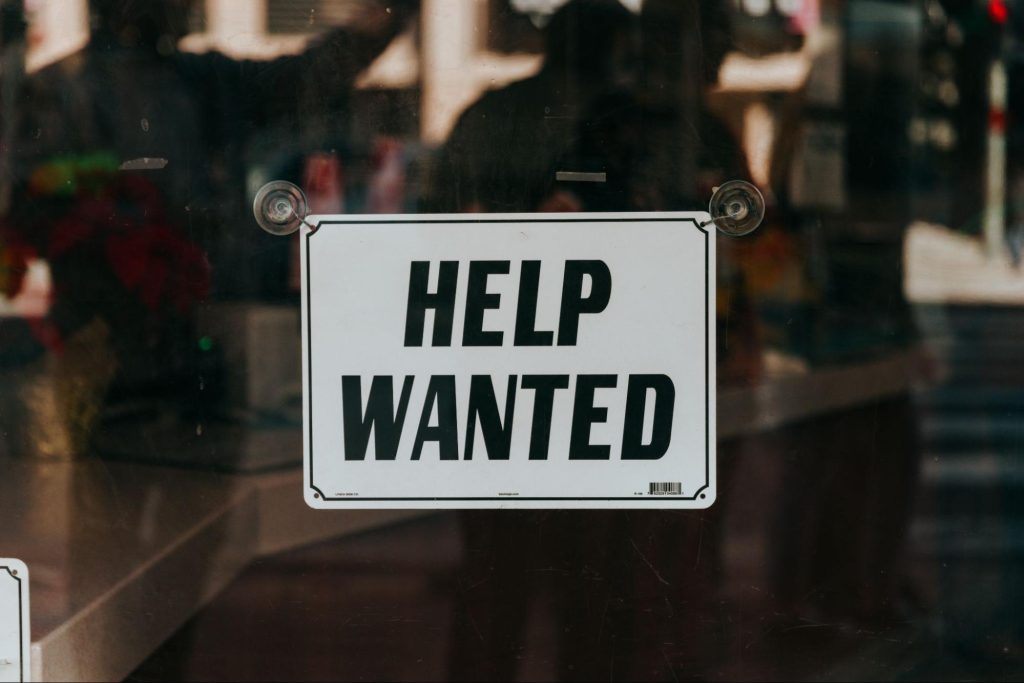
Photo: Nathan Dumlao | Unsplash
How to hire field canvassers
From job postings to interviews, Borderless Magazine’s Nissa Rhee gives tips for finding the right candidates for field canvassing
This year, Borderless Magazine decided to try something different. We took a page from the community organizing playbook and hired field canvassers to help us better serve and understand our Spanish-speaking community, which makes up about half of our audience.
I’ve written about the benefits of this on-the-ground approach in previous blog posts and some of the things news outlets should consider when trying out this method. But for news outlets looking to start working with field canvassers for the first time, hiring can be one of the biggest challenges. So where do you start?
While field canvassers use some of the same skills your reporters do – talking to strangers, asking insightful questions, active listening and notetaking – they don’t necessarily have to have journalism experience.
In fact, we found that thinking about a person’s qualities and network were more important than their experience in news. And number one among those qualities is communication skills.
“Field canvassers have to be confident and good communicators,” said Diane Bou Khalil, Borderless Magazine’s engagement reporter. “They are out in public talking to strangers. If I take the perspective of your average person walking down the street or attending an event, a random person is coming up to talk to me, so field canvassers need to be able to tell me quickly what they’re about and why I should care.”
Another key quality is confidence.
“Confidence is essential because they have to be comfortable with putting themselves out there into new communities, new environments and neighborhoods that are unfamiliar,” said Bou Khalil.
Finally, we were looking for someone who was punctual, professional and trustworthy. Since field canvassers may be gathering people’s contact or demographic information, such as whether they are an immigrant, we needed our field canvassers to handle sensitive information securely and not abuse that trust. The last thing you want is a community member being hurt or targeted by bad actors because they spoke to one of your field canvassers.
As part of our efforts to protect our community, we ran criminal background checks on the field canvassers we hired. Background checks are controversial and don’t tell the whole story, so if you choose to use them make sure you’re doing so thoughtfully, legally and having conversations with candidates about why and how you’re using them.
Other qualities to keep in mind are things that are specific to your community. The thing that makes the community organizing approach different from other forms of audience engagement, after all, is the emphasis on community connections.
Think of this approach as the opposite of parachute journalism and a potential antidote to the decades of mistrust journalists have encouraged in many communities.
Ideally, a field canvasser should be from the same area and share demographic qualities with the community you’re trying to reach. If you’re trying to reach Spanish speakers, for example, the field canvasser should feel confident holding conversations in Spanish. Similarly, if you’re trying to reach people who live in a particular neighborhood, your canvasser should also live in that neighborhood.
Think of this approach as the opposite of parachute journalism and a potential antidote to the decades of mistrust journalists have encouraged in many communities. And the benefits for journalists and community members is mutual.
For Angie Lopez, one of our early field canvassers and an immigrant from Ecuador, the opportunity to work with Borderless meant a chance to challenge how her community was covered by the media.
Here’s what Angie said when we asked her what she was hoping to get out of working as a field canvasser:
“A universal experience of the immigrant story is, unfortunately, erasure and conformity. Conventional outlets oftentimes dismiss the pain and struggle these communities face. Whenever these stories are brought to light there often is a negative connotation associated.
Through this experience at Borderless, I hope to bring [awareness to] an outlet of just coverage for the immigrant story. Building trust has historically been a more difficult task as conventional media has played a negative role in getting their stories out there. However, through direct face-to-face contact and outreach I hope to erase that mistrust and build upon a sense of understanding and compassion.”
Finally, when looking for potential field canvassers, don’t forget about basic best practices in equitable hiring! These include clearly stating the compensation and scope of work and making it easy for people to apply. For example, instead of asking for a fancy resume, you can ask people to answer some simple questions when applying that are specific to the work they’re going to fulfill for you.
Make sure that you’re aware of your biases and how they might inform the way you approach candidates. Additionally, take steps to ensure that your job description is getting in the hands of a wide range of people.
When recruiting, we shared our job description as a one-page document with local community groups in the neighborhoods we were focusing on. Ready to get started? Below is our job description for inspiration:
We are hiring!
Position: Field Canvassers
Company: Borderless Magazine NFP
Manager: Executive Director
Status: Part-Time contract
Location: Chicago
Compensation: $20 per hour plus $100 travel stipend
Approximate Start Date: February 28, 2022
Website: www.borderlessmag.org
Help us better serve our Latinx community. We are hiring two Spanish-speaking field canvassers, one focusing on Little Village and Pilsen and one focusing on Albany Park and Belmont Cragin. Pay is $20/hour for 3 hours/week for 12 weeks.
Responsibilities include:
- Tabling and door-to-door outreach in two paired communities: Little Village and Pilsen, and Albany Park and Belmont Cragin
- Interviewing community members about their information needs and how they prefer to get their news
- Organizing and leading small listening sessions with community members
- Recruiting community members to become Borderless Magazine readers and donors
Qualifications:
- Fluent in Spanish and English
- Values and fosters open communication, uses and understands the importance of active listening skills
- Experience in community or labor organizing desired, but not required
People of color, women, immigrants, people with disabilities, LGBTQ+ people, and people with low-income backgrounds are strongly encouraged to apply.
About Borderless Magazine
Through local reporting in English and Spanish, we are working to highlight the policies that impact the lives of low-income immigrants and people of color and to connect immigrants and their family members to the information they need to live fulfilling lives. We are working to dismantle racist and harmful coverage of immigrants and reimagining immigration journalism for a more just and equitable future. Sign up for our newsletter and see our impact report for examples of our work.
To apply
Email us at team@borderlessmag.org by Feb. 15 explaining why you are interested and what makes you a great candidate. Have you lived or worked in Little Village, Pilsen, Albany Park or Belmont Cragin? Are you or your family members immigrants? Please tell us.
